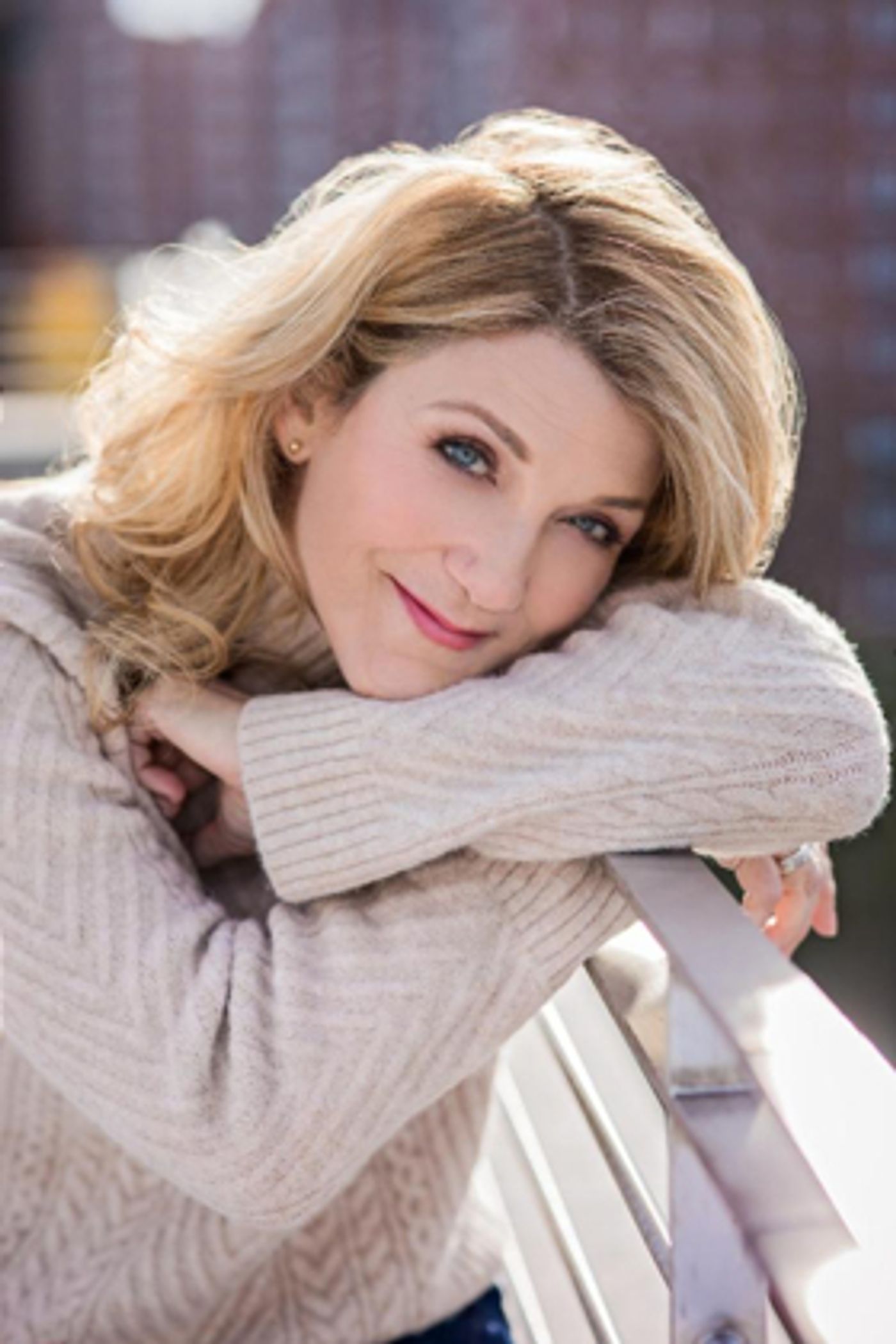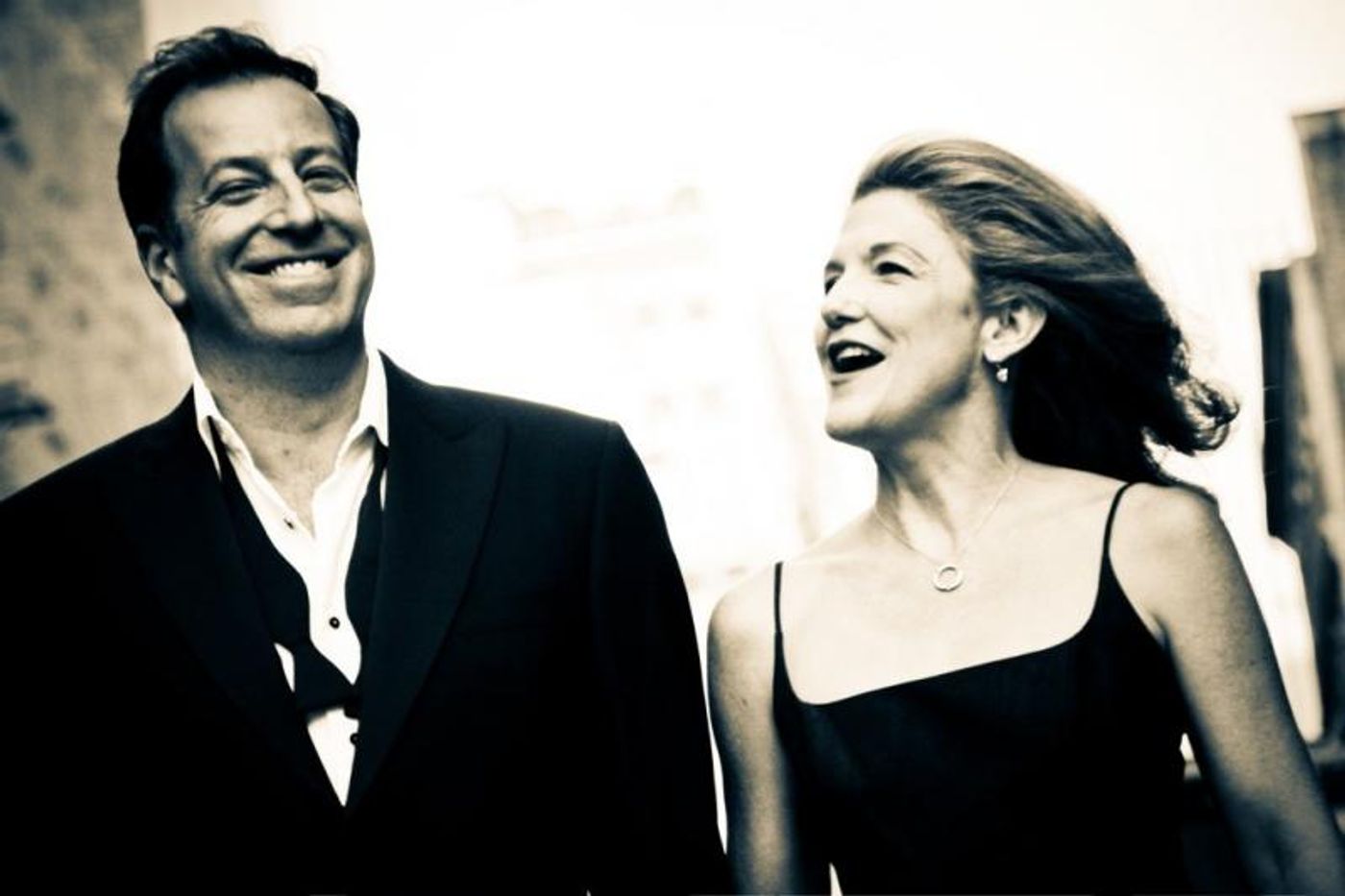BWW Exclusive: LADY IN THE DARK- A Musical Mixture of Head and Hart
By: Harry Haun Apr. 17, 2019

There's an unfortunate guffaw in the otherwise well-calibrated British thriller of '46, "Dead of Night," when Mervyn Johns (Glynis' dad), sensing he's sinking into insanity, brings a shaky hand to his forehead and says, "I've got to get to a mental specialist."
Psychiatry as a dramatic device tiptoed rather lamely onto the entertainment scene, mostly unnoticed (and definitely upstaged!) by a world war going on at the time.
Writer-director Moss Hart led the charge in this psychic direction when he started hitting the shrink's couch five times a week. His "Herr Doktor," Dr. Lawrence Kubie, suggested he write a play on the subject, and Hart did: "I Am Listening," titled after the good doctor's most constantly recurring line. Published as a play and pitched to Katharine Cornell, it was never produced so when, by chance, at a birthday party for Walter Huston, Hart bumped into composer Kurt Weill, the show became a musical for Gertrude Lawrence. With lyricist Ira Gershwin on board after four years of mourning brother George's passing, "Lady in the Dark" bowed on Broadway in '41.
The "Lady" in question was Liza Elliott, and hers was a tale of two offices-her own posh digs at the chic, style-setting fashion magazine, Allure, and its polar opposite: her shrink's place. Devoted to making women feel beautiful because she never felt that herself, she dumped all her headaches and bad dreams on an analyst to unravel and straighten. These took the form of three flights of fancy (The Glamour Dream, The Wedding Dream and The Circus Dream), all becalmed by a safe-harbor finale where she sings the leveling, sublimely haunting 11 o'clock number, "My Ship."
Paramount's muted misfiring of '44, with Ginger Rogers, played up the costumes and spectacle-and downplayed the songs. To give you an idea, "My Ship" was hummed.
Somehow, the glory of the score still survives. The show was shoehorned into an hour-long "Lux Radio Theatre" three times, the last time with Judy Garland. And "Max Liebman Presents" did a 90-minute live-telecast of it starring Ann Sothern.
Gertrude Lawrence played all 550 performances of "Lady in the Dark" on Broadway, Christine Ebersole added four more via a 1994 "Encores!" post-script at City Center, and now Victoria Clark is sailing forth as the third Liza Elliott to hit New York in a three-performance reprise, also at City Center, April 25 and 26 at 8 and April 27 at 2.
In her support are Ben Davis, Montego Glover, Christopher Innvar, Ashley Park, David Pittu, Ron Raines, Amy Irving, MasterVoices' 120 singers, the Orchestra of St. Luke's and, tripping lightly through Liza's hallucinations, Doug Varone and Dancers.
This is not Clark's first time at the Liza Elliott Funny Farm. The show has practically followed her around teasingly like a lapdog, but only now, thanks toMasterVoices, is she getting a solid crack at it. Happily and not at all coincidentally, this production is directed and conducted by one of her old Yale classmates, Ted Sperling, who also wielded the baton over her Tony-winning work in "The Light in the Piazza."
"Ted and I became instant friends at college," she relays, "and kept telling ourselves for years 'Lady' would be a great project to do together. Now, it's really happening."
And now is not for the first time, either: "Actually, I did a reading of it at Yale right after I graduated, so that's been a minute. David Loud, another wonderful Broadway conductor who was at Yale with us at the same time, is really the one who introduced me to 'Lady in the Dark' and asked me to do a concert version of it."
It was learning-on-the-job for Clark, and there was much to learn about this loosy-goosy lady, zigzagging back and forth from revelatory fantasyland to the real world.
"It's acting," Clark says matter-of-factly, "just a question of reconciling dichotomies within one's self. Instead of not paying any attention to her neuroses, she's reached the breaking point. These things are like geysers-they just start spouting up. She's gotta pay attention to these emotions and the fear she's going through, to function."
All of this the actress put together for herself. The first--and the only--version of "Lady in the Dark" that she has seen was the one which Sperling directed at Philadelphia's Prince Music Theatre in the fall of 2001 starring Andrea Marcovicci.

It's a pretty depleting role, whoever does it. "Liza doesn't really leave the stage," Clark is quick to point out. "She's either in the dreams she's describing to her doctor or she's at her office working and ranting. She only leaves the stage to get a drink of water and change clothes, then she's back on. There isn't a lot of downtime. You get on the train, and it will hopefully take you to the next stop, and then you get off."
With the exception of her Tony-winning role, Margaret Johnson, Liza Elliott is unlike anyone she has ever played. "So many times in shows we are looking at characters who are idealized versions of people, and here's somebody like Margaret, who talks about her struggles and how imperfect she feels and then comes out the other side."
"I think Liza is a powerhouse. She's a very strong, intelligent, witty woman, very successful at her job-yet she's terribly flawed and very upset, and she's not afraid to talk to somebody about what's going on with her. I find that totally admirable."
But how does Liza stack up with the #MeToo generation, being pulled to one side by career and to the other by marriage? "I think women today struggle with these issues, too. They may not talk about it as much, but any woman who wants to have a job feels very guilty about not being able to stay home with her kids. I know I did.
"I took a year off here, two years off there, to be with my son, and I still really longed to be back at work. No matter where you are, once you have a personal life and a career, you always feel that you're some place where you're not supposed to be.
"I think men feel this way, too. It's not just a woman's struggle-especially now. I feel sorry for men. There's so much pressure on them. If they're not perfect, they get shouted at. It's tough for everyone to balance personal and professional lives."
Hart directed his wife, Kitty Carlisle, in a Cape Cod production of "Lady in the Dark" in the '50s, but they never passed tips on to their son, Christopher, who's adapting this edition with Kim Kowalke. "He hasn't given me secret info or anything like that. It's just that, over the years, when I've seen him at different events, he'd say, 'Oh, you've gotta do Liza! You've gotta do Liza!' so it's fun to get here finally-with him."
Not that Clark lacks "Lady in the Dark" enlightenment. "There's been a radio play of this by Kim that we've been referencing. There's the stage manager's script. There's Gertie Lawrence's notes. There's the script that Moss Hart published after the production, and there's also the full script they went into rehearsal with. I've read bits of all of them, but Ted is really the master of all those different versions of the scripts. He and Chris have been working hard to come up with a great adaptation."
"We can't do the full production, but we have a 120-voice choir on stage with us. This is just to give a hint of the scenes, a flavor of the style and content. In a way, we're there to serve the score and the production as a whole-even if it's not the entire show. It's sort of an abridged version. I think there's enough of a sense of the spectacle and complexity of the show that will give people a good idea of what it is."
Videos

